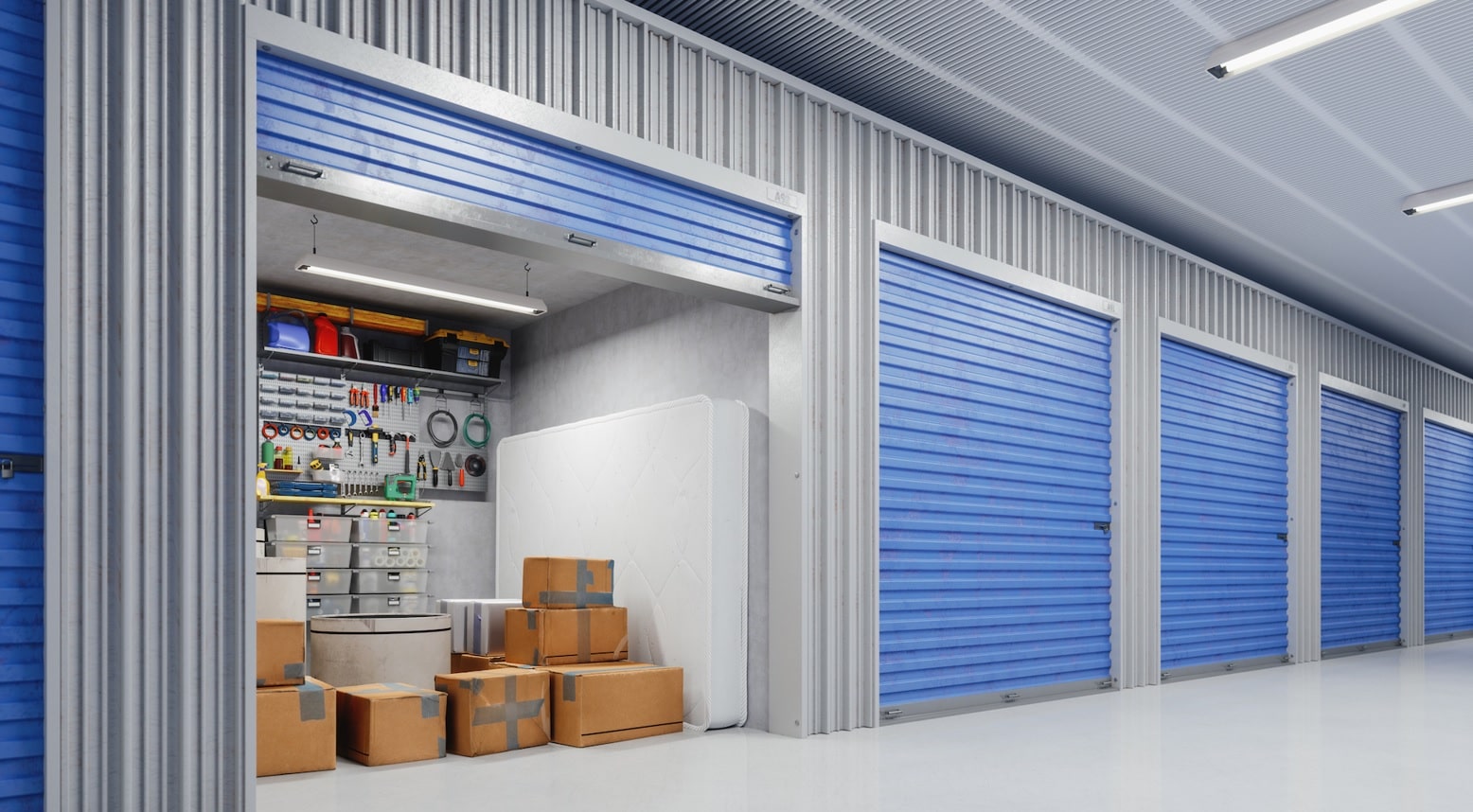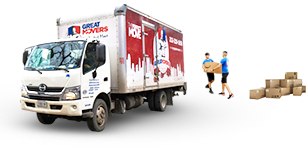
First-Time Renting Guide for New Jersey Storage Units
If you’ve never rented a storage unit before, it can feel like a daunting task. Whether you need to temporarily store your belongings due to a move or need longer-term storage after downsizing, a storage unit is a great solution. Reliable storage facilities provide excellent security as well as a variety of unit sizes to match your needs. Of course, before you rent out the cheapest unit available, you should follow this storage guide for first-timers to make sure you’re covering all your bases.
Finding the Right Storage Facility
Before you start looking into units, you will first need to figure out what kind of storage you need. There are two options:
- Full-service - as the name suggests full service movers, the company will help you pick up your belongings and deliver them to the storage unit as well as to your house. Many also have an app where you can schedule your return and/or pickup from your phone. As well, these companies will also take photos and document your stuff so you can take a look at this information in case you forgot what you put in the unit.
- Self-storage - this is the most popular and more accessible option for most people. The facilities are safe and secure, but more importantly affordable. In addition to storing your standard household items, some can even store large items like cars, boats, and hot tubs. The downside is that you are responsible for delivering your belongings to and from storage. You will also need to keep an inventory of everything in the unit because the company will not.
Which option is right for you? That depends on your needs. If you have a very small budget, going the self-storage route is the best way to go as it’s definitely more affordable. Plus, you can pick up your things whenever you want.
Full-service is a good option for people who don’t have access to a car or truck. Since you have no way of getting your things to the facility, you will need to either rent a truck or hire a full-service storage company.
You can also go for the middle ground and ask NJ moving companies if they provide storage services. The storage solution tends to be priced in between full-service and self-storage with all the benefits of full-service storage. The moving company will pick up and return your belongings between the two locations.
In addition to the type of service they offer, make sure you ask about the actual unit location. Some fasciitis only have outdoor units. While this is great for storing things like vehicles, gardening equipment, and outdoor furniture, it’s not so great for everything else in your house. These outdoor units are not climate-controlled and also exposed to the elements. There are more opportunities for damage to occur to your things. And if you own a lot of expensive electronics or furniture, you’ll want to keep these protected.
That’s where indoor storage units come in. These are situated inside a building and are climate-controlled, which provide protection from water or fire damage. In addition, it is more resistant to pests and dust and are monitored 24/7, equipped with alarms and guards.
Create an Inventory List for First-Time Renters
You might already know what you plan on storing. If you’re renting one because of a move, it might be tempting to just throw everything into storage. Don’t forget that you’ll need some basics while you’re in an AirBnB or staying at someone else’s house. Depending on how long you have to wait to move into your new place, the list of things you need to have with you might be pretty long!
Keeping all of this in mind, you should do a thorough walkthrough of your house and create a basic inventory of what will go in storage. Make sure to include an estimate of how many boxes you plan on storing, the pieces of furniture that will go in there, and measurements of larger pieces. This information will help when it comes to deciding the size of the unit you need.
As you perform your inventory, keep track of items that might require climate-controlled storage. Not only do you have to worry about electronics and furniture, but other items like business documents, photographs, and art all will require consistent temperatures and lower humidity.
It's Important to Calculate Your Space
Once you have completed your inventory, it’s time to estimate the storage unit size you need. There are a few approaches to measuring your stuff. You can put everything into a pile and use a measuring tape to figure out the dimensions you need. Alternatively, you can measure each item individually. Either way, you want to have two measurements:
- Square feet - multiply the length and width of your belongings. If they make a pile that is 5 x 5 you need a storage unit that is at least 25 square feet.
- Cubic feet - multiply the length, width, and height of your belongings. If your larger items make a pile that measures 5 x 5 x 5 you need a unit that is at least 75 cubic feet.
Storage units come in a variety of sizes, with the most common sizes being:
- Small - 25-50 square feet, 200-400 cubic feet
- Medium - 75-150 square feet, 600-1,200 cubic feet
- Large - 200-300 square feet, 1,600-2,400 cubic feet
If you’re moving to a one bedroom apartment, changes are you probably will only need a small unit. Of course, that might change depending on how much furniture you have to store. Ultimately, the more stuff you have, the larger space you’ll need for storage.
Knowing how much space your belongings take can save you a lot of time and money! You don’t want to accidentally rent a unit that’s too small as you’ll then have to find a larger space and potentially pay rent for two units. Alternatively, you don’t want a unit that is too large as the you could be shelling out an extra $100 for a space that’s half-empty.
Do Research on Storage Facilities
While it’s ideal to find a storage center near you, don’t get hung up on location. It’s all too easy to choose a location that doesn’t provide you what you need because it’s close to your new home. If you’ve got a car, you can cast a wide net and find some locations that offer exactly what you need. Plus, if you live in one of the major NJ cities, you’ll be able to find plenty of options just outside of the main places.
Once you’ve picked out a few that match your price point and needs, it’s time to check the reviews. While you should always take online reviews with a grain of salt, if you see recurring issues or complaints, it can give you better insight into what you might want to look for when you visit. In addition, if you know of anyone who uses a storage unit, ask how they feel about it! There’s nothing quite like word-of-mouth.
Finally, go visit the locations and ask questions. Don’t let the sales people pressure you to sign a contract immediately. Most companies will hold a unit overnight if you’re interested so you can think it over. When you’re visiting, make sure to ask the following questions:
- Ask the manager if you can see the actual unit. That way you can see how well maintained the unit is and if there are any issues.
- See if there are any specials or discounts. Most places offer you the first month for free or for a greatly reduced price if you’re transitioning from another storage unit. Even if you’re moving into a new unit, some places might give you a nice discount.
- Find out what happens if you are late or miss a payment. If you’re planning on long-term storage you definitely want to figure out what happens in case you can’t make a payment. Some facilities offer a grace period while others do not. In some cases your unit might be auctioned off if you are just a few days late!
If you like what you see and think the terms seem agreeable, ask the manager to put the unit on hold. Even if they can’t hold the unit, ask for their business card so you can get in touch later.
Must Read the Rental Agreement Carefully
Before you sign the dotted line, make sure to take your time and read the rental agreement. This will specify all the terms of your lease and it is a binding document. In general, the agreement will have:
- Basic description of the unit
- Length of lease
- Rent amount
- Rent due date
- Amount of security deposit
- Accepted payments
- Non-payment terms
- Additional fees
- Tenant rights and responsibilities
- Landlord rights and responsibilities
- Cancellation terms
- What you can and can’t store
- Value limit
- Move-out process
Once you have everything ironed out, then it’s time to sign the paperwork! Congratulations, you have a storage unit!
Find Storage Solutions Today
Looking to store your belongings? Then the sooner you get started the better. You don’t want to leave this to the last minute, especially if you know you won’t be able to move into your new house immediately. If you want to make storage easier, ask your NJ mover if they provide this service! That way you get full-service storage at slightly elevated self-storage prices.
